Little Bittern, Woudaap, Zwergdommel, Garça-pequena, Mirasol Pequeño
Spotted in the Alentejo region of Portugal. Little Bittern sound
The Little Bittern (Ixobrychus minutus) is a wading bird in the heron family Ardeidae, native to the Old World, breeding in Africa, central and southern Europe, western and southern Asia, and Madagascar. Birds from temperate regions in Europe and western Asia are migratory, wintering in Africa and further south in Asia, while those nesting in the tropics are sedentary. It is rare north of its breeding range.
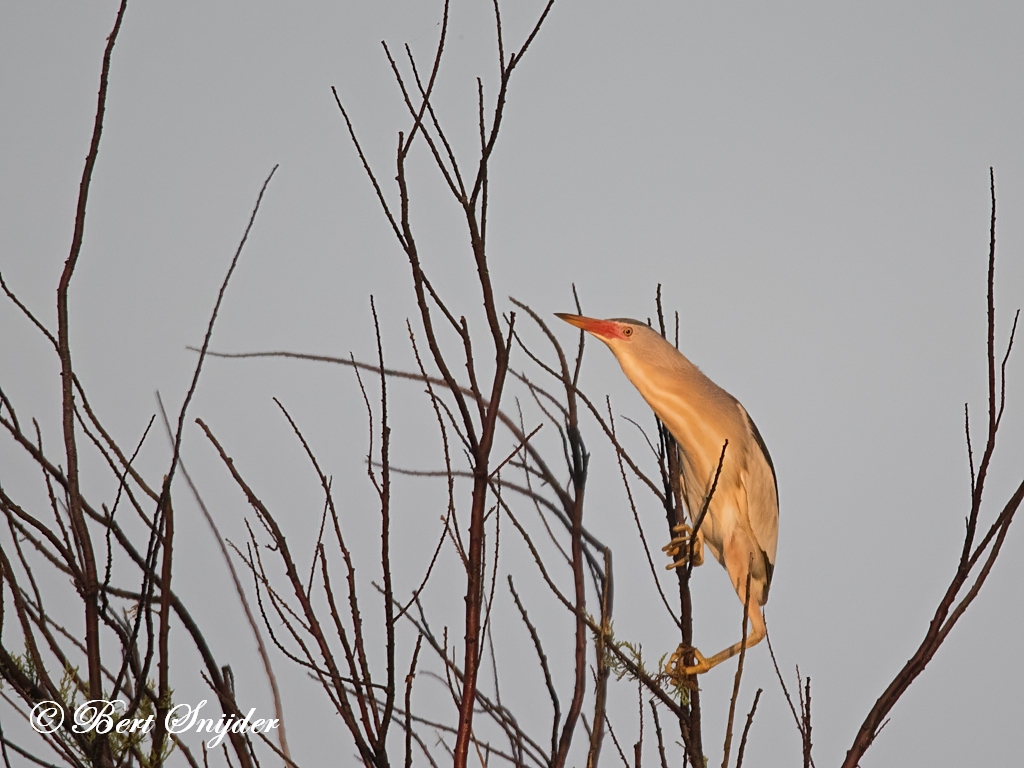
More photos at the bottom of this page.
It is a very small bittern; measuring 25–36 cm (9.8–14 in) in length, 40–58 cm (16–23 in) across the wings and weighing 59–150 g (2.1–5.3 oz). It is among the smallest herons on earth. It has a short neck, longish bill and buff underparts. The male’s back and crown are black, and the wings are black with a large white patch on each wing. The female has a browner back and a buff-brown wing patch.
The Australian Little Bittern (Ixobrychus dubius) and the extinct New Zealand Little Bittern (Ixobrychus novaezelandiae) were formerly considered subspecies of the Little Bittern.
The Little Bittern is one of the species to which the Agreement on the Conservation of African-Eurasian Migratory Waterbirds (AEWA) applies.
The Little Bittern’s breeding habitat is reedbeds. It nests on platforms of reeds in shrubs, and 4-8 eggs are laid. It can be difficult to see, given its skulking lifestyle and reedbed habitat.
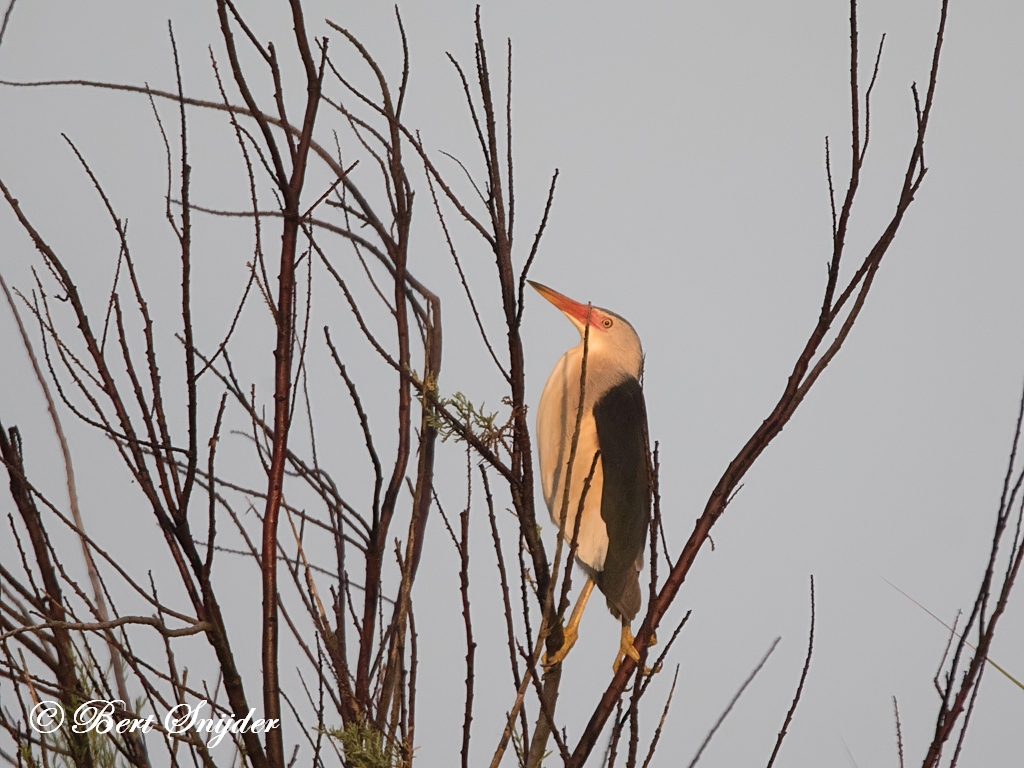
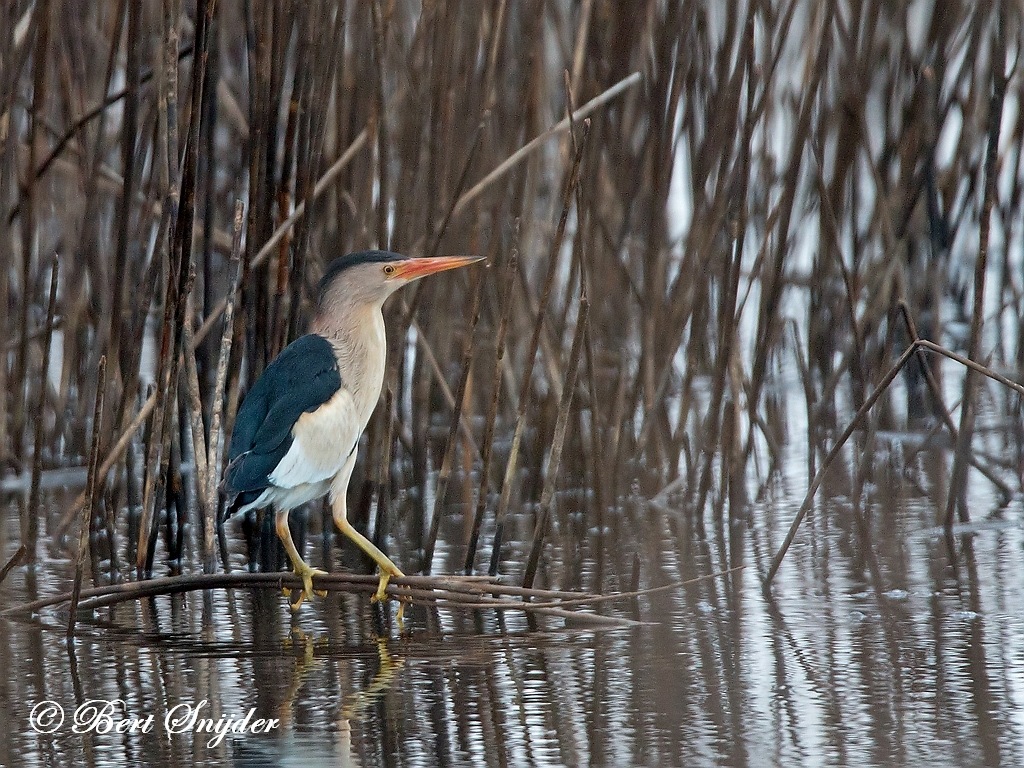
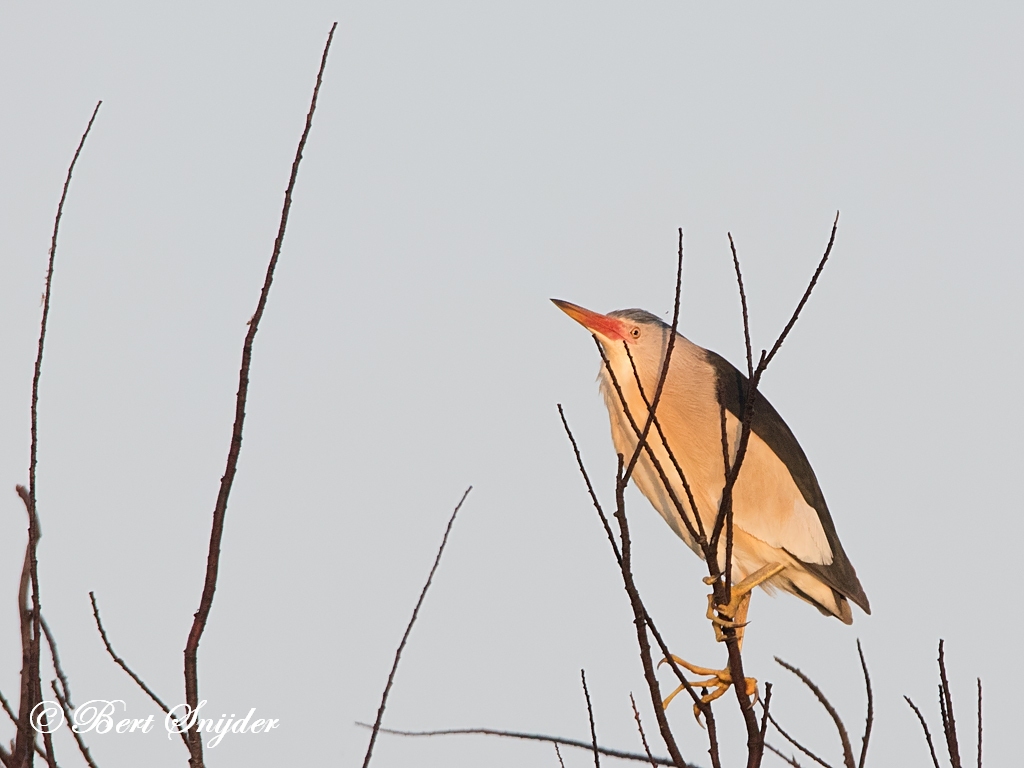
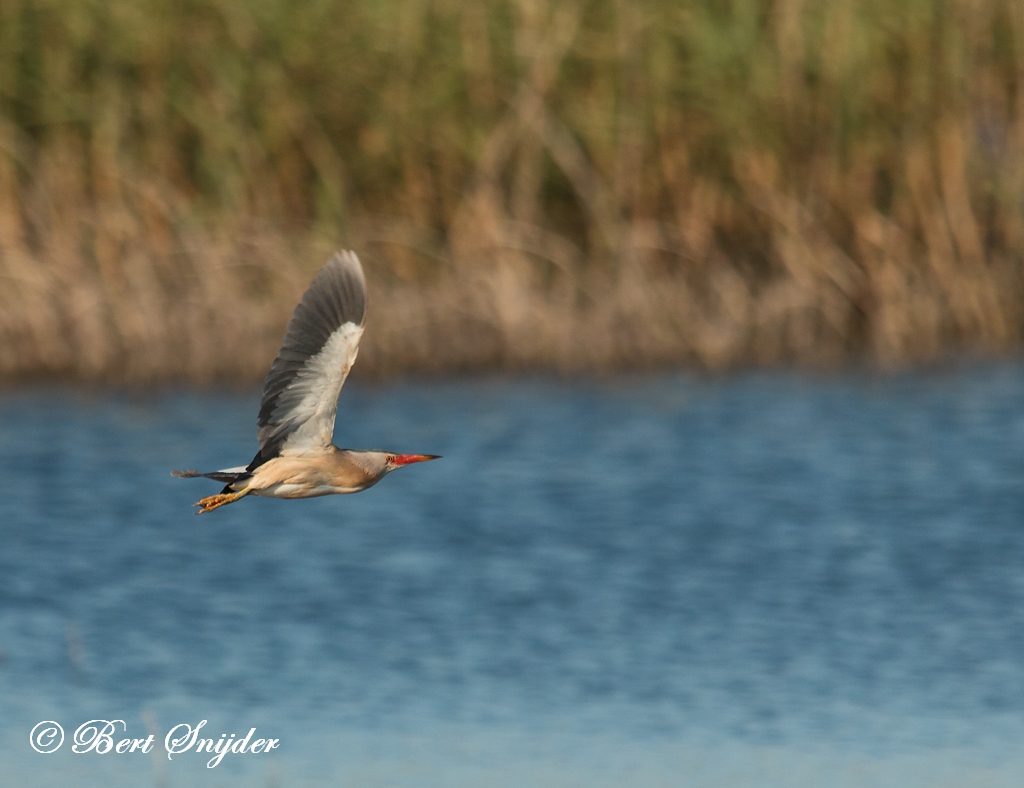
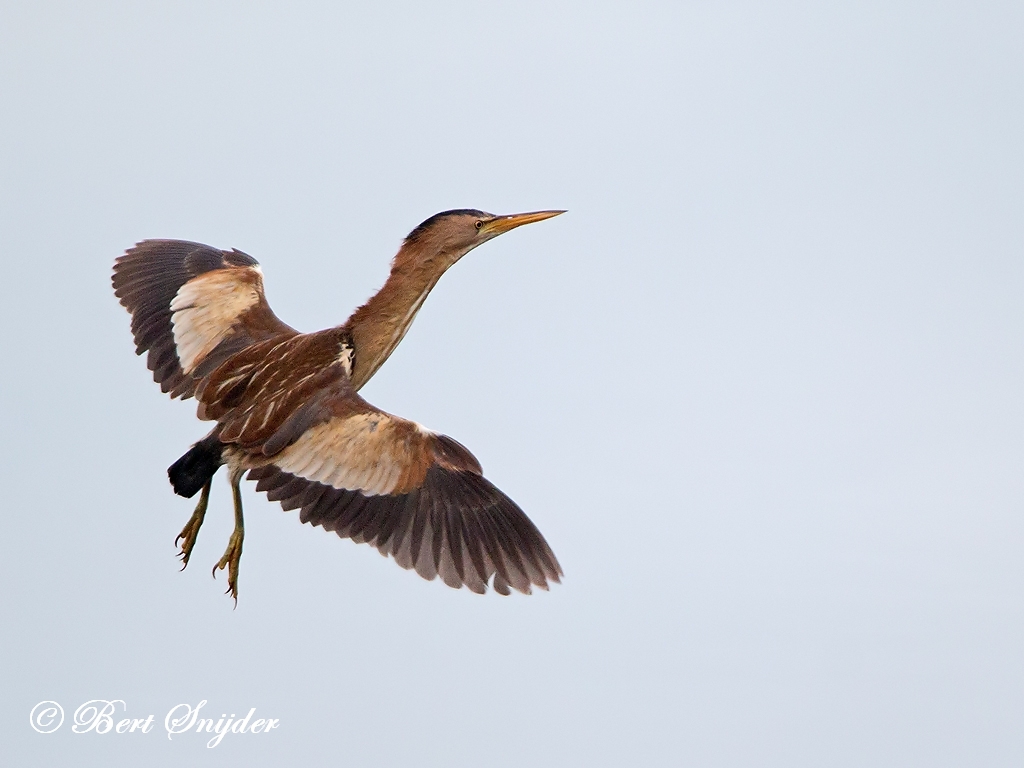
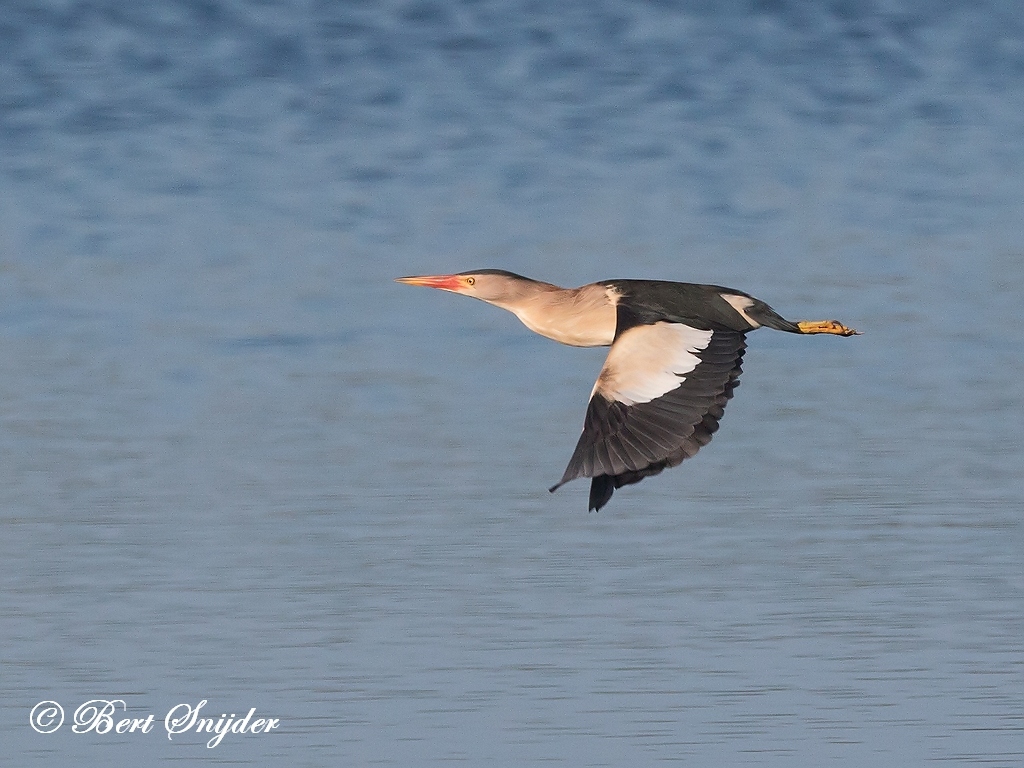
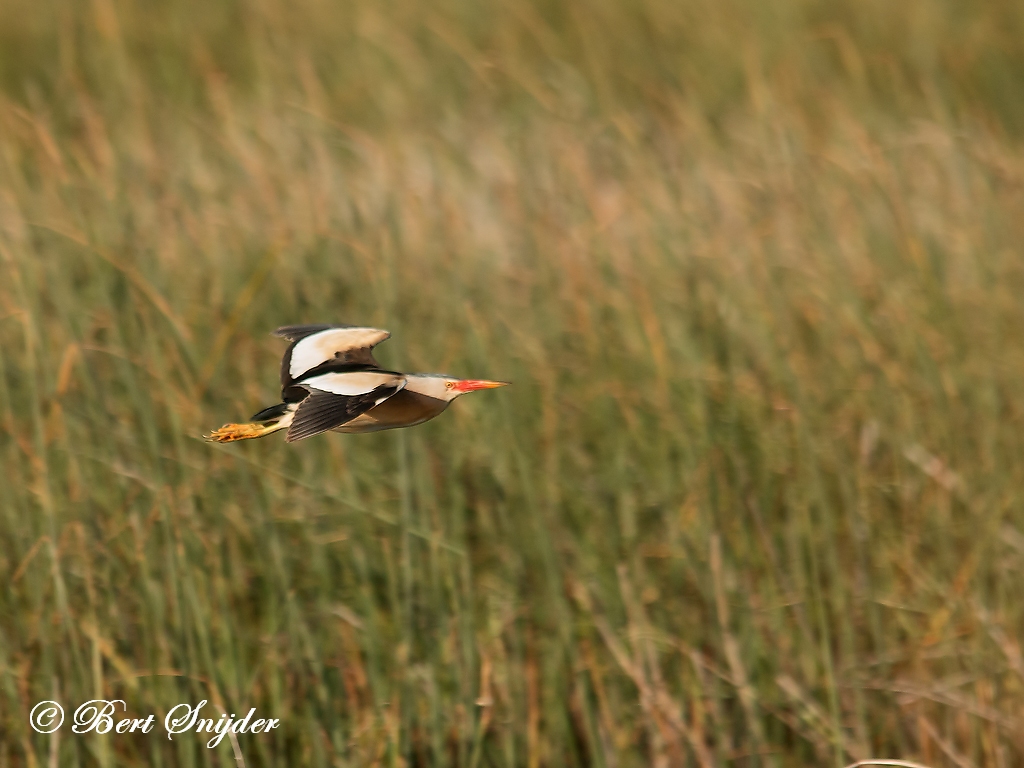
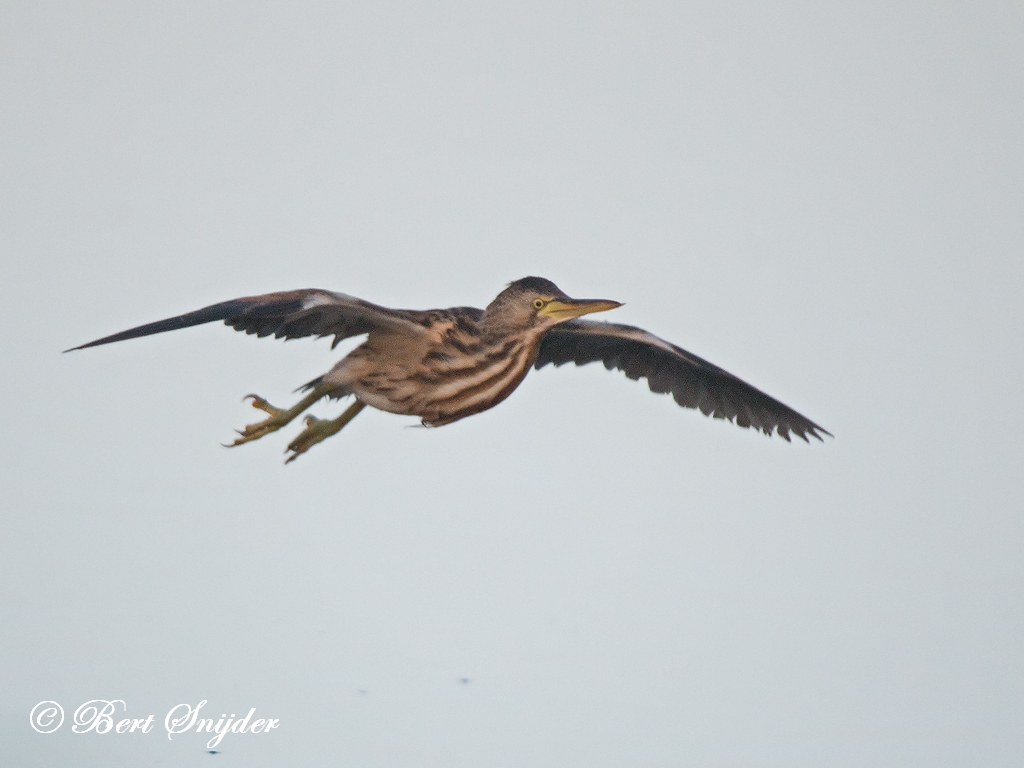
Other synonyms:
Afrikaans: Kleinrietreier, Woudapie
Asturian: Garcina, Garcina Nana
Breton: Ar bongorz bihan
Catalan: Gomet, Martinet menut, Suís
Catalan (Balears): Suís
Valencian: Gomet
Czech: Bukácek malý, bukáèek malý
Welsh: Aderyn-bwn Leiaf, Aderyn-bwn lleiaf, Bwm bach y gors
Danish: Dværghejre
German: Zwergdommel, Zwergdrommel, Zwergreiher, Zwergrohrdommel
English: Black-backed Least Bittern, Great Bittern, Little Bittern
Esperanto: Malgranda botaûro
Spanish: Avetorillo, Avetorillo Comun, Avetorillo Común, Mirasol Pequeño
Estonian: Väikehüüp
Basque: Amiltxori txikia, Martinet menut
Finnish: Pikkuhaikara
Faroese: Vætturhegri
French: Blongios nain, Butor blongios, Héron blongios, Porchat, Pouacra
Irish: Aderyn-bwn lleiaf, Bonnán Beag
Gaelic: Corra Ghrain Beag
Galician: Garza pequena, Martinet menut
Manx: Coar veg
Croatian: Capljica Voljak
Hungarian: Pocgém, Törpegém
Icelandic: Rindilþvari
Italian: Tarabusino, Tarabusino comune
Japanese: himeyoshigoi, koyoshigoi
Cornish: Clabyttour lyha
Kwangali: Mwene-mwene Hakaruu
Latin: Ixobrychus minutus
Lithuanian: Mažasis baublys
Latvian: Mazais dumpis
Malagasy: Fiandrivoditatratra, Godrano, Mpiandravoditra, Tambakoratsy, Voromalemy, Zafimbano
Dutch: Woudaap, Woudaapje, Wouwaapje
Norwegian: Dvergrørdrum
Polish: baczek
Portuguese: garça pequena, Garça-pequena, Garçote-comum, Garcote-comun
Romansh: Tarbegl pitschen
Russian: Volchok
Scots: Corra ghrain beag
Slovak: buciacik mociarny
Slovenian: capljica, mala bobnarica
Albanian: Gakthi i vogël
Serbian: bukovcic, Capljica
Sotho, Southern: Khoitinyane
Swedish: Dvärgrördrom, Dvergrördrom
Swahili: Ngojamaliko, Vumatiti Mdogo
Turkish: Cüce Balaban Küçük balaban
Xhosa: Ihashe
Travel Birdwatching Holiday Alentejo, Vacation Portugal for birders to see birds on your trip. Guided Birdwatching Tours & Trips.